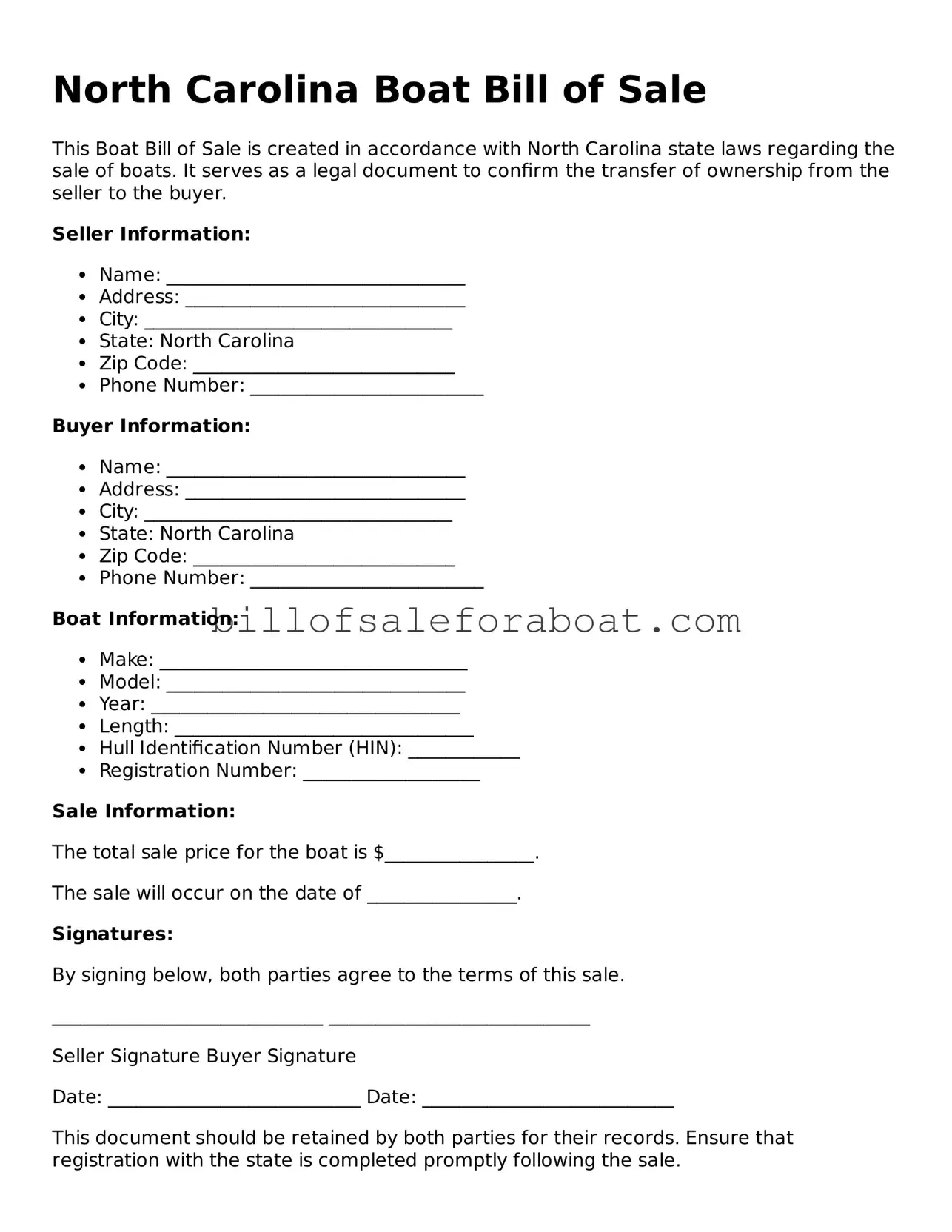Boat Bill of Sale Template for North Carolina State
The North Carolina Boat Bill of Sale is a legal document that records the transfer of ownership of a boat from one person to another. This form serves as proof of the transaction and can be crucial for registration purposes. If you're ready to buy or sell a boat, make sure to fill out the form by clicking the button below.
Open Boat Bill of Sale Now

Boat Bill of Sale Template for North Carolina State
Open Boat Bill of Sale Now
Fast, simple form completion
Finish Boat Bill of Sale digitally in just minutes.
Open Boat Bill of Sale Now
or
Free PDF
